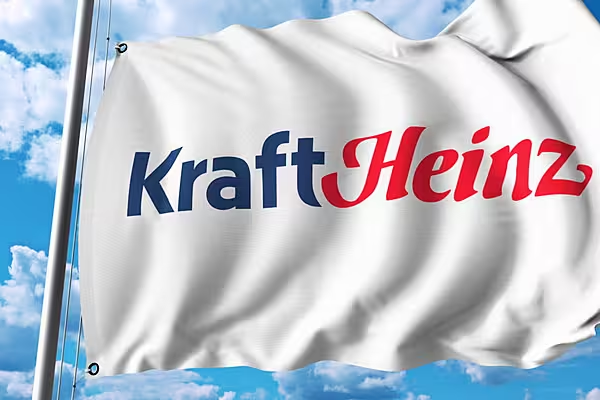US food producer Kraft Heinz Co struck a cautious tone about its 2020 performance following a better-than-expected start due to coronavirus-related stockpiling.
Even though the strong start should mean greater upside for the full year, the maker of Heinz ketchup, Kraft Macaroni & Cheese and Oscar Mayer lunch meat said the environment remains too unpredictable to call.
"It's therefore difficult to become significantly more optimistic about the second half," said chief financial officer Paulo Luiz Basilio.
The company's shares, which had risen 52% since 12 March on hopes that consumers' pantry-stocking would boost results, were down 0.2% at $30.58 a share in morning trade in New York.
Difficult To Quantify
Risks that are too difficult to quantify include foodservice sales and their pace of recovery, the potential for consumer pantry deloading and supply disruptions as well as the possibility that costs for key commodities such as meat could become more volatile as the year progresses.
In addition, the company forecast a 700 basis point headwind to second-half EBITDA from the loss of its coffee partnership with McDonald's, incentive compensation and the strength of the US dollar, which reduces the value of overseas sales.
Kraft Heinz said first-quarter sales were $6.16 billion, slightly ahead of analysts' average estimate of $6.14 billion, according to IBES data from Refinitiv.
Excluding hits from currency fluctuations and divestitures, organic sales rose 6.2%, in line with a forecast the company gave earlier this month.
Increased Consumer Demand
About 6 to 7 percentage points of sales growth were due to increased consumer demand related to the COVID-19 pandemic, as shoppers stocked up on pantry staples.
About one-quarter of the sales growth was due to price increases. Nearly three-quarters came from selling a larger volume, and higher-priced mix, of goods, as the growth in at-home consumption more than offset lower shipments to foodservice outlets like restaurants, which remain closed to help curb the spread of the novel coronavirus.
First-quarter net income fell to $378 million, or 31 cents per share, from $405 million, or 33 cents per share, a year earlier. Excluding items, adjusted earnings were 58 cents per share, topping analysts' average estimate of 55 cents.
The full benefit from the COVID-related sales lift did not fall to the bottom line, due to costs related to meeting the higher demand.
Outlook
Looking forward, the company forecast low to mid-single-digit organic net sales growth and mid-single-digit constant-currency adjusted EBITDA growth for the current second quarter.
"The impact of the COVID-19 pandemic on the company's full-year 2020 results remains uncertain," the company said.














